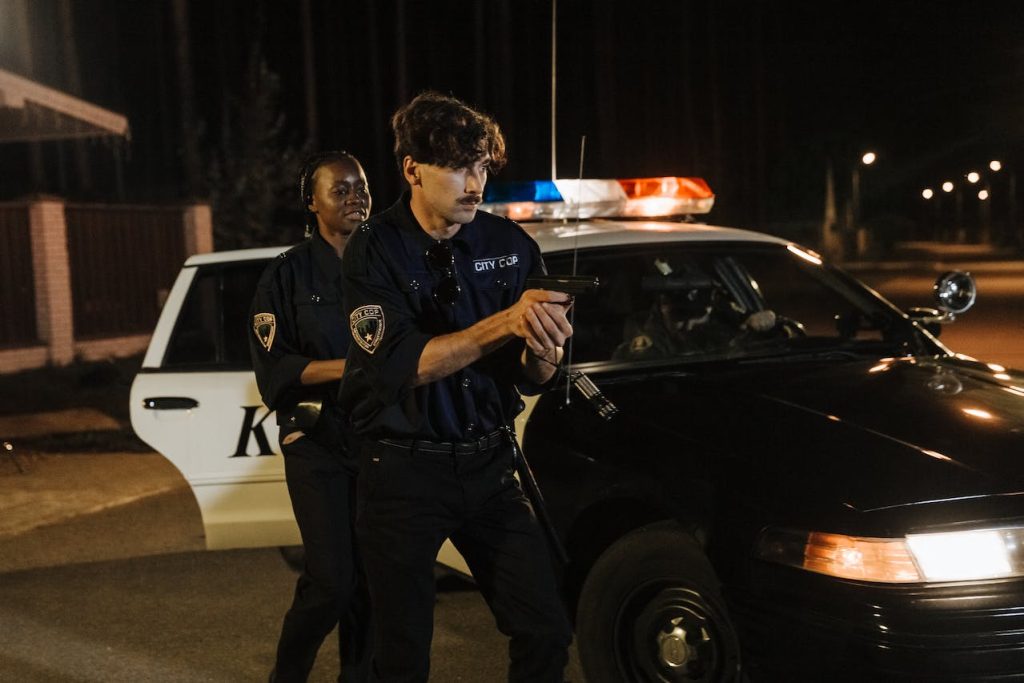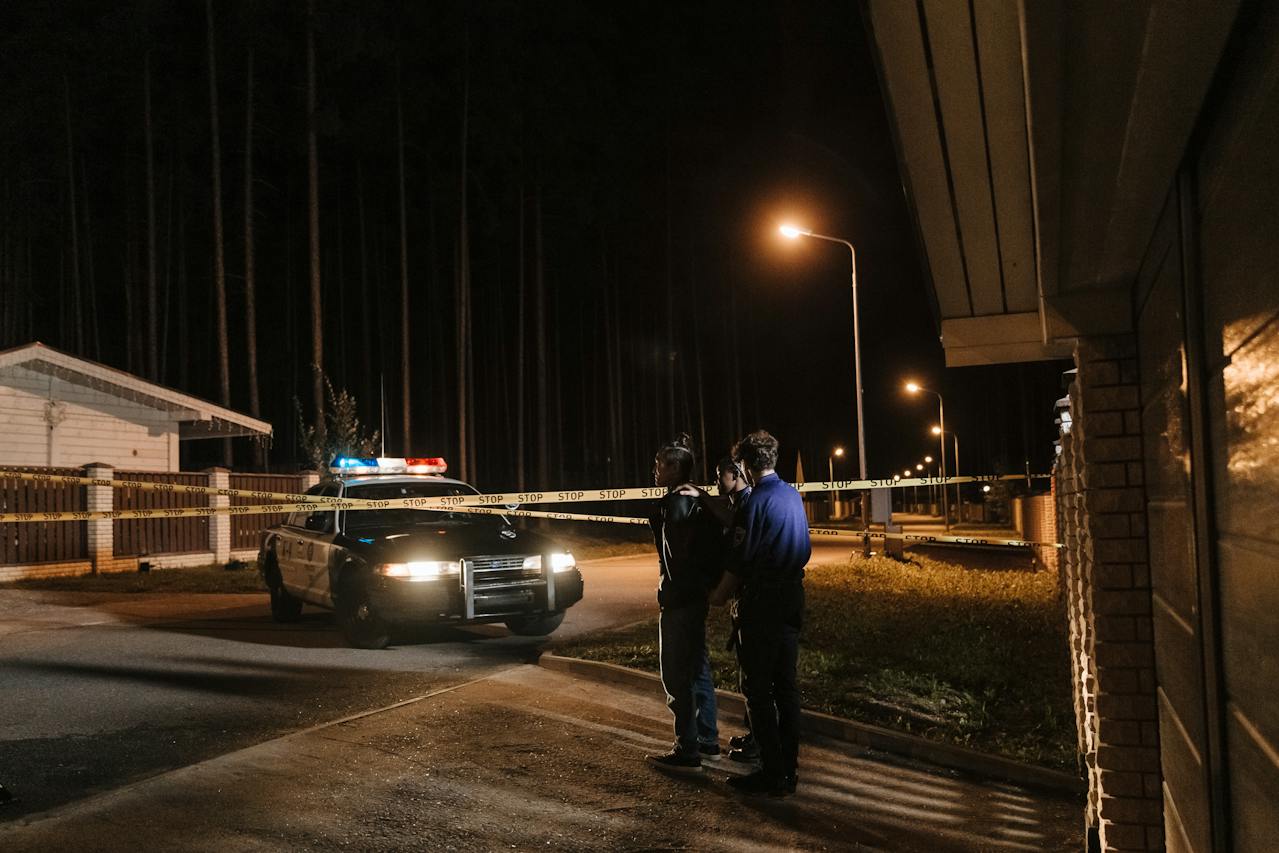Imagine you’re sipping your morning coffee and scanning through news articles. Suddenly, a headline catches your attention: “Local Celebrity Arrested for Domestic Violence.” You’re taken aback, but then you wonder, how does the arrest and investigation process for domestic violence work? Don’t we often find ourselves curious about things we read or hear, especially when it comes to such grave matters?
If you’ve ever pondered over the multifaceted world of domestic violence and the essential role a Domestic Violence Defense Lawyer plays in the legal process, then this article is for you. Let’s embark on this enlightening journey together.

What Constitutes Domestic Violence?
Domestic violence is a term that covers a wide spectrum of abusive behaviors that one person uses to control or exert power over another within a familial or intimate relationship. This form of violence isn’t just confined to physical harm; it manifests in various ways, and understanding its breadth is essential to recognize and address it. Here are some of its various forms:
- Physical Abuse: This is often the most visible form of domestic violence. It includes actions like hitting, slapping, punching, choking, or any other form of physical harm. Even if it doesn’t leave a mark or bruise, any intentional infliction of physical pain is abusive.
- Emotional and Psychological Abuse: This form of abuse can be more elusive to outsiders but is deeply scarring. It involves actions like belittling, humiliation, constant criticism, intimidation, and threats. These actions can erode a person’s self-worth and confidence over time.
- Sexual Abuse: Any forced or coerced sexual activity, even within a marriage or long-term relationship, constitutes abuse. This includes rape, molestation, or any unwanted sexual actions.
- Financial Abuse: Money can be used as a tool for control in relationships. Financial abuse includes behaviors where one partner controls all the financial resources, limiting the other partner’s access to money, or prohibiting them from working.
- Digital Abuse: With the rise of technology, abuse has also found its way into the digital realm. This includes cyberbullying, tracking one’s partner through GPS without consent, and accessing personal emails or texts without permission.
- Isolation: This involves cutting off the victim from their support systems, like family or friends, to increase dependence on the abuser.
- Stalking: Unwanted and obsessive attention by an individual or group towards another person, involving persistent harassment, physical or digital.
- Spiritual Abuse: Using a person’s spiritual beliefs to manipulate, dominate, and control them.
In essence, domestic violence isn’t always about black eyes and visible bruises. It’s a pattern of control and dominance that can manifest in various ways. It’s essential to recognize these signs, not only in our lives but in the lives of those around us, and take proactive steps to address and prevent them. Recognizing domestic violence in all its forms is the first step toward combating and preventing it.
The Initial Call and Police Response
When a call is made regarding potential domestic violence, the police treat it with utmost priority. They arrive at the scene to ensure the victim’s safety and to assess the situation. It’s like when firefighters respond to an emergency; they don’t just put out the fire but also check for potential dangers lurking in the background.
The Arrest Decision
When police respond to a domestic violence call, they’re stepping into a potentially volatile situation that demands careful assessment and a well-calibrated response. The decision to arrest an alleged perpetrator is not made lightly and hinges on several key factors:
- Visible Injuries: If the victim has visible signs of physical harm, such as bruises, cuts, or other injuries, it can prompt an immediate arrest. This tangible evidence is a strong indicator of violence having occurred.
- Witness Statements: If there are witnesses present, be it neighbors, friends, or family, their accounts of the incident can greatly influence the arrest decision. Corroborative accounts can solidify the case against the accused.
- Admission of Guilt: If, during the initial interaction with law enforcement, the accused admits to the act of violence, it typically results in an immediate arrest.
- Victim’s Statement: The account given by the victim is crucial. However, it’s worth noting that even if a victim is reluctant to press charges or provide a statement (often due to fear or manipulation), the police can still proceed with the arrest if they believe violence occurred.
- Presence of Weapons: Discovering weapons at the scene, especially if they are believed to have been used in the act, can expedite an arrest.
- Previous Records: If the alleged perpetrator has a history of domestic violence or other related criminal records, it can weigh heavily on the decision to arrest.
- Mandatory Arrest Laws: Some jurisdictions have mandatory arrest laws for domestic violence cases. This means if the police have reasonable grounds to believe domestic violence has occurred, they are required by law to make an arrest, regardless of the victim’s wishes.
- The severity of the Incident: The intensity and nature of the domestic violence act also play a crucial role. For instance, choking or acts that could lead to grave bodily harm or death can result in immediate arrest.
Post-Arrest Procedures
The arrest for domestic violence sets in motion a series of standardized legal and procedural steps designed to ensure both the protection of the victim and the rights of the accused. These steps vary somewhat by jurisdiction, but the general sequence is as follows:
- Booking: After the arrest, the accused is taken to the police station for the booking process. This involves recording the individual’s personal information, details of the alleged crime, taking fingerprints, and photographing the accused.
- Initial Detention: Depending on the severity of the charges and the jurisdiction’s policies, the accused might be held in a detention facility, usually a local jail, awaiting their first court appearance.
- Initial Court Appearance: Often within 24 to 48 hours of the arrest, the accused makes their first court appearance, sometimes referred to as an arraignment. Here, the charges are formally read, and the accused can enter a plea (guilty, not guilty, or no contest).
- Bail Decision: During the initial court appearance, the judge may decide on the bail. This decision is based on various factors, including the severity of the crime, the accused’s criminal history, and potential flight risk. Bail can be set high in domestic violence cases to ensure the accused doesn’t pose a threat to the victim.
- Issuance of Protective or Restraining Orders: To ensure the safety of the victim, the court might issue a temporary protective or restraining order against the accused. This order may prohibit the accused from making contact with the victim or even approaching certain locations.
- Victim Interviews and Statements: The victim’s voice is paramount in these cases. Their statement, often detailing the abuse, can either make or break the case. This stage is treated with sensitivity and utmost care.
- Discovery and Evidence Review: Both the prosecution and defense will engage in a phase called discovery. Here, they gather and exchange information and evidence related to the case. This stage is crucial for building a defense or prosecution strategy.
- Plea Bargaining: In some cases, the prosecution and defense might engage in plea negotiations. The accused might plead guilty to a lesser charge in exchange for a reduced sentence, or certain charges might be dropped.
- Trial: If no plea agreement is reached or if the accused pleads not guilty and wants to go to trial, the case proceeds to this stage. During the trial, both sides present their arguments, evidence, and witness testimonies. The outcome is determined either by a judge or jury, depending on the jurisdiction and the nature of the charges.
- Sentencing: If the accused is found guilty, the final stage involves sentencing. The penalties can range from probation, mandatory counseling, fines, to imprisonment, depending on the severity of the crime and the accused’s criminal history.
The Importance of Legal Representation
Domestic violence cases are fraught with emotions, complexities, and high stakes for all involved parties. When an individual stands accused of such a crime, the repercussions extend beyond just potential legal penalties. Their reputation, relationships, and future opportunities could all hang in the balance.
- Expertise in the Legal Landscape: A defense law firm specializing in domestic violence cases has the necessary knowledge about the intricate details of laws, regulations, and precedents. They can skillfully navigate the labyrinth of the legal system, ensuring that all protocols are followed, and rights are upheld.
- Protection of Rights: The accused, like any individual, has rights.
- Objective Perspective: Given the emotionally charged nature of domestic violence cases, having an objective, third-party perspective is invaluable.
- Negotiation Skills: Plea bargains are a significant aspect of many domestic violence cases.
- Thorough Investigation: A dedicated defense attorney will delve deep, scrutinizing evidence, cross-examining witnesses, and even hiring private investigators if necessary.
- Emotional Support: Beyond just legal counsel, a good defense attorney offers emotional support to the accused, helping them cope with the stress, anxiety, and fear that often accompany such legal battles.
- Cost-Efficiency: While hiring a defense law firm might seem like a significant expense initially, in the long run, it can be cost-effective.
Aftermath and Rehabilitation
Post-trial, the focus shifts to rehabilitation and healing. For victims, it’s about rebuilding their lives, and for the accused, it’s about introspection and making amends.
Conclusion
The road from a domestic violence call to the conclusion of a trial is long and winding. It’s a process that demands fairness, justice, and compassion. With the right legal representation and understanding, the pursuit of justice becomes more attainable.
